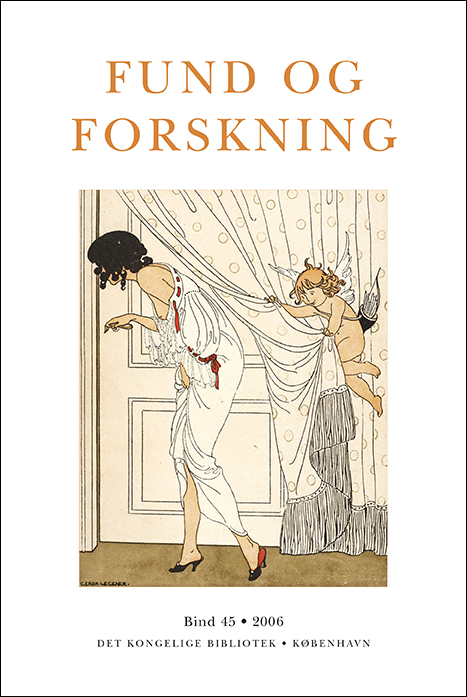Johann Damgaards Alithia (1597). Genrehistorie, teksthistorie og idehistorie: Omkring et dansk fyrstespejl til Christian 4.
DOI:
https://doi.org/10.7146/fof.v45i0.41182Resumé
The history of Danish political thought is a neglected field of study. This is due to scholarly traditions as well as to the lack of “great texts.” The present article presents a Danish manuscript mirror of princes, Alithia, written in 1597 by Johann Damgaard and presented to King Christian 4. The text itself is neither original nor of exceptional literary merit, but the King liked it and discussed it chapter by chapter with the author. In other words: Damgaard’s Alithia seems to have hit the bull’s eye of political correctness and royal taste. This makes it an interesting source for Danish political culture in the decades around 1600. It represents a synthesis of humanist and reformation ideology where humanism has determined the form while the contents is mostly traditional Christian kingship in the protestant tradition. An exploration of Damgaard’s sources reveals that Damgaard’s text represents a sofisticated writing up of material found in two earlier manuscript mirror of princes by Jens Skafbo from 1590 and 1592 respectively. Skafbo, on the other hand, compiled his mirror of princes on the basis of Paulus Helie’s Danish adaption (printed 1534) of Erasmus of Rotterdam’s Institutio principis christiani and diverse other texts mainly from the 1580’s. This plagiarism, as modern eyes would see it, was typical of the age. The interesting point is the thorough stylistic and ideological twist towards humanism that Damgaard gave his text. A last interesting point is that these mirrors of princes were not destined for the King alone. In more modest and shortened manuscript editions they circulated among the higher nobility. In one such edition of Damgaard’s Alithia one finds a paragraph with no parallel in the King’s version. It describes the relation between King and realm by means of a parable about a lion (the king) and a unicorn (the realm). If the lion behaves peace is assured, but if the lion offends the unicorn it will throw him out by means of its sharp and strong horn (the nobility). The paragraph ends with some barbed verses about the expulsion of King Chrsitian 2. in 1523. This is precious evidence for a radical aristocratic ideology which only occasionally, if at all, surfaces in the sources.Downloads
Publiceret
2014-05-15
Citation/Eksport
Olden-Jørgensen, S. (2014). Johann Damgaards Alithia (1597). Genrehistorie, teksthistorie og idehistorie: Omkring et dansk fyrstespejl til Christian 4. Fund Og Forskning I Det Kongelige Biblioteks Samlinger, 45, 35. https://doi.org/10.7146/fof.v45i0.41182
Nummer
Sektion
Artikler


